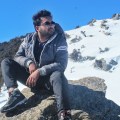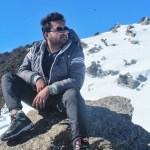Introduction
Overcrowded lecture halls, overutilised equipment, getting rejected for multiple open electives, piled up bags, hunting for the perfect study space and an ideal chair make us wonder if our academic landscape is immune to the changing strength of students. As the end semester examinations have concluded, one might have been troubled with finding a peaceful place to study given the crunched academic and residential infrastructure. To answer these questions, our team at Vox went on an investigative journey to uncover the answers, seeking insights from professors, study space staff, and the Dean of Academic Affairs. Join us as we navigate the intricacies of the academic crunch at IITK to future plans and solutions awaiting us.
Current Situation
As our campus welcomed an influx of approximately 8500 students in the post-COVID era, the existing infrastructure found itself under pressure. The surge in student numbers made crowded lecture halls, constrained open electives and burdened labs commonplace. The effects of this increment have rippled into the academic experience of both students and faculties.

A dedicated team of around 540 faculty members instructs these students in the classrooms. However, the current student-to-faculty ratio is 18:1, slightly off the ideal 10:1 ratio. While recruitment efforts are underway, it’s a time-consuming process. Furthermore, the available lecture halls and labs on campus have struggled to accommodate the increasing student population.

Regarding overburdened labs, Prof. K.S. Venkatesh said, “In a course like ESC201, our resource constraints us to limit the number of students in a lab at 120 per day for five days a week, but due to unavailability of students and schedule clashes, we need to push in ~145 students on some days and ~90 on other days, which puts a burden on the labs.”
“We have no room to reschedule the labs. Every resource is fully consumed, whether the number of tables in the labs, the number of days, or the number of tutors. Even if we have more tutors and tables in the lab, the students can’t come and attend two labs at the same time due to rescheduling of labs due to public holidays”
Prof. K.S. Venkatesh added
Prof. Yatindra Nath Singh also resonated with this by saying, “Meticulous scheduling and resource distribution are needed to use our facilities efficiently.”
The study spaces on our campus (like the Student Lounge (SL), P.K. Kelkar Library, the Non Core Labs (NCL), the Computer Centre (CC), the Rajeev Motwani (RM) Building, the H R Kadim Diwan (KD) Building and Hall reading rooms) can accommodate approximately 1,500 students against a strength of 8500 students on the campus. Given the crunched residential facility, many hostel rooms are already overcrowded, so the study spaces are in high demand during exam periods. But they operate at full capacity, leaving students searching for a quiet place to study when they need them the most. The problem gets amplified when there are no department buildings for some departments, and other facilities are restricted in terms of timing, like the Student Lounge (SL) and entry to other departments during the night, like the Rajeev Motwani (RM) Building and the H R Kadim Diwan (KD) Building.

Impact on students
In November ’22, the lab examination of the ESC201 course was foregone, citing insufficient lab capacity. The routine labs were carried out with three people on one equipment. The condition has improved since then, with the Y22 batch having lab sessions with two people on one equipment and a lab examination of 1.5-hour duration to compensate for limited capacity.

Crunched study spaces, high student-faculty ratio and inadequate lab resources profoundly affect students’ academic experience. The interaction between faculty and students has been limited to content delivery during the lecture hours.
We questioned professors about the success of the Student Reaction Survey (SRS) in improving students’ learning experience. Some professors pointed out that the survey has benefited them, but others pointed out that the course is over when they get the feedback. The benefits of the feedback could only be passed on to future batches, thereby suggesting conducting SRS in real time. Prof. K.S. Venkatesh also pointed out that there needed to be incentives or recognition for faculties to work on their teaching methodology, without which the intended benefits of the survey may not be realized. The Dean of Academic Affairs, Prof. Shalabh, urged the students to actively participate in the Student Reaction Survey (SRS) so that faculties can incorporate constructive feedback to improve upon their courses. He assured all the students that the reaction survey is entirely anonymous, including the comments, and it is impossible to determine the respondents’ identities (students).
Prof. Ishan Sharma, an IITK alumnus and Department of Mechanical Engineering Professor, mentions how UGARC has reduced contact hours of courses of the student’s major department. The tutorial hours are the first to be removed to compensate for the lost contact hours. The student-faculty ratio might be 18:1, but it touches 200:1 in some second and third-year mechanical engineering courses, for example, Dynamics (ME209), which now has no tutorials.
Regarding the strength of tutorial classes, Prof. Shalabh said that currently, the tutorial classes have an approximate student-faculty ratio of 40:1. The institute is trying to bring that number to 30:1 by recruiting more faculties.
Prof. K.S. Venkatesh, an alumnus of IIT Kanpur, reckons how he knew every student in his tutorial during his time as a Teaching Assistant (TA) for a course. He also emphasised a need for tutorials with reduced strength for better one-to-one interaction.
Solutions & Future Plans
After exploring the reasons for the academic crunch and its impacts, let’s delve into the solutions and upcoming plans being taken by IITK to solve the issue. In a similar context, the Dean of Academic Affairs, Prof. Shalabh, replied, “We have constantly seen a surge in the intake of students, and the facilities take some time to get in place. The administration is always ready to share the responsibility of providing the students with a smooth academic experience even in the constraints.”
“Given a choice, I may compromise on residential halls but won’t want to crunch academic facilities, which has a lifelong effect on a student’s career.” -Prof. Shalabh
Dhwanit Balwani, the current President of Student Gymkhana, added that IITK is planning to build a Library extension and a new faculty building.
Prof. Shalabh clarified that the administration will not compromise students’ academic experience at IITK. Hence, they’re constantly looking to efficiently organize educational spaces, like renovating the library and converting some rooms in the Diamond Jubilee Academic Complex (DJAC) into lecture halls. The institute has also established more extensive labs in DJAC and procured new equipment. Alongside, new academic buildings are being built with a vertical extension to use the limited space available on the campus efficiently. A computer lab with 196 computers has been developed, and more developments are in progress.
Vox was informed about initiatives to reduce overcrowding at the library. Efforts are underway to lower the number of shelves and relocate more books to the basement, freeing up additional study space. Further, plans are being examined to convert the staff area into a study space. A proposal to expand the library to the parking area without tampering with the existing infrastructure is also being considered.

In conclusion, the academic crunch at IITK poses multiple challenges stemming from an increase in the number of students and limited space. The academic and residential crunch together aggravates the situation of students at IITK. The compromised student-faculty ratio and lab capacity have led to concerns about the quality of interaction between faculty and students and the students’ learning experience. The faculty and administration have shown cooperation and efforts to provide the best experience to students and optimize the existing spaces. Still, as the institution evolves to meet the demands of its growing student body, a more comprehensive and long-term approach is required to maintain the academic excellence of IITK.
Written by: Ashutosh Sharma, Likith Sai Jonna, Nandini Vaid, Pranav Agrawal, Vaneesha Kumar, Yeleena Vimal
Edited by: Khush Khandelwal, Bhavya Sikarwar
Design by: Vardaan Vig








































